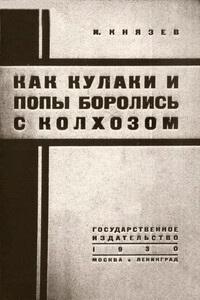The Boy Scouts In Russia - [11]
"Then if there are so few as that, won't we advance?"
"Ah, that I don't know! The Austrians, I hear, are very busy. They say they are moving already in great strength across the border, but that is far away from here, and it is not our concern. It is for us to keep the Germans so busy here that they will not be able to crush France before England can get her army into action. At the beginning it does not matter so much whether we win victories or not, so long as we can force the Germans to send many corps here instead of using them to invade France. But I have talked enough. Now-good-bye, and may God be with you here!"
"Good-bye," said Boris, and Fred repeated Ivan's wish in Russian. Ivan seemed astonished.
"So your mother taught you her mother tongue!" he said. "Ah, but that is splendid!"
Then he was off.
"Ivan might have been a great actor, I believe," said Boris. "See, isn't he the German to the life as he goes, there? No wonder he can deceive them so!"
"It's pretty dangerous work for him, though, I should think," said Fred. "They wouldn't waste much time on him if they caught him, would they?"
"Only the time they needed for a drumhead court-martial. After that, if he was lucky, he would be shot instead of being hung. But he is ready, you see. It is his part. Oh, we Russians are all united now, if we never were before! Germany has threatened us for years. She has set Austria against us. This time we had to fight, and you will see that all Russia will be behind the Czar. We learned our lessons against the Japanese. That was not a popular war. It was not made by the people, but by a few who forced the Czar's hand. Now we shall make the world see that though Russia may be beaten, she has the power to rise from defeat."
"What will happen here if they do take the men away?"
"They won't take them all. Only the younger ones. There will be enough left to look after the place and after us. Though if they come, I shall have to hide you, my cousin! I am just thinking of that. I shouldn't wonder if those stupid people would have sent word to someone. We had better be prepared. Come with me-I will show you something."
Fred followed Boris, and in a few minutes found himself in a great room that was obviously the dining-room of the house. In this room there were many pictures, and the walls were panelled in oak, blackened by smoke and age. Boris looked about to make sure that they were not observed, then he touched a spot in one of the panels, and it slid open. Beyond this, however, was revealed an unbroken wall. Again Boris touched a certain spot, and now this wall, seemingly solid and unbroken, gave way, just as the oaken panel had done.
"Even if they discovered the panel, you see, they would not have the secret," said Boris. "I will show you the exact spots you must touch. Then if they come, you can reach this place by yourself. Once in here, you will be safe. Carry an electric torch always with you. I will give you one later. You will find two sets of arrows marked every few feet through the passages to which this leads. The upper ones point to the outside door that is at the end of a passage far beyond the house. The lower ones, if you follow their course, will bring you back to these panels. So you cannot lose your way."
"By George, that certainly sounds mysterious! Have you always planned for something like this?"
"Oh, these passages are very old. This house, you see, was built at a time when intrigue was more common than now. But when my father began to see, as he did years ago, that Germany was sure to force war upon us, and that it would probably come in his lifetime, he made many changes. This is not really a private house at all-it is a little outpost of Russia, here in the midst of an enemy's country. And it is not the only one. In Silesia and in Galicia we have places like it."
"Perhaps the Germans will find that Russia is not so slow after all!"
Outside now there rose a peculiar sound, but one that Fred identified at once.
"That sounds like your Germans coming now, Boris," he said, quietly. "I've heard crowds making just that same noise at home-on election night, for instance, when they were coming to make the winner give them a speech."
Boris listened for a moment, then he went to a window.
"Yes," he said. "But it's not the sort of Germans we need to worry about. It's only the people from the village. Old men, and women, and children-boys, of course. I'm surprised that they should come for they know they can't get in."
But even as he spoke, there came a thunderous sound of knocking at the outer door and the sharp grounding of arms-a noise as ominous as it was unmistakable.
"There are soldiers, too. They are here much sooner than I thought they could come!" exclaimed Boris. "Here, into that passage with you! Listen! Follow the arrows! They will lead you down. Stop at a double arrow. You will be able to hear. The wall is very thin there, on purpose. You can hear what is going on in the great hall and still be perfectly safe. I'll come for you as soon as I can get rid of them."
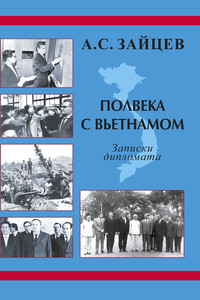
В основу книги положены личные впечатления автора о командировках во Вьетнам в период 1961–2011 гг. Вошедшие в сборник очерки основаны на малоизвестном широкому читателю фактическом материале, это своеобразный дневник, живое свидетельство непосредственного участника и очевидца многих важных событий в истории отношений наших двух стран. «Эта книга, – пишет автор, – скромная дань любви и уважения героическому, трудолюбивому и талантливому народу Вьетнама, с которым судьба связала меня на протяжении более полувека».В формате PDF A4 сохранен издательский макет.
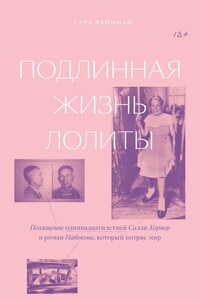
«Лолита» Владимира Набокова не просто произвела фурор среди современников писателя — она и по сей день остается одним из самых популярных романов в мире. Однако мало кто знает, что сюжет книги во многом вдохновлен историей похищения Салли Хорнер, одиннадцатилетней девочки, о которой Набоков узнал из газет. Сара Вайнман, журналистка и редактор сайта CrimeReads, впервые с 1950-к голов проливает свет на трагическую судьбу Хорнер и описывает обстоятельства, в которых был создан нашумевший роман Набокова.

В книге рассказывается история главного героя, который сталкивается с различными проблемами и препятствиями на протяжении всего своего путешествия. По пути он встречает множество второстепенных персонажей, которые играют важные роли в истории. Благодаря опыту главного героя книга исследует такие темы, как любовь, потеря, надежда и стойкость. По мере того, как главный герой преодолевает свои трудности, он усваивает ценные уроки жизни и растет как личность.
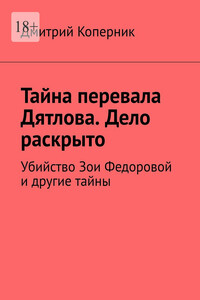
Тайна перевала Дятлова раскрыта. Хамар-Дабан, убийство Зои Федоровой, Бермудский треугольник, смерти Есенина и Маяковского, загадка Ванги, самое жуткое и загадочное преступление в мире. В этой книге вы найдете ответы на тайны, будоражащие воображение людей всего мира.
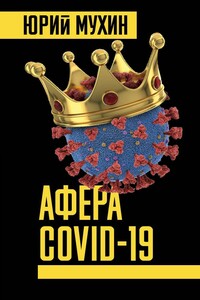
«Доктор, когда закончится эпидемия коронавируса? — Не знаю, я не интересуюсь политикой». Этот анекдот Юрий Мухин поставил эпиграфом к своей книге. В ней рассказывается о «страшном вирусе» COVID-19, карантине, действиях властей во время «эпидемии». Что на самом деле происходит в мире? Почему коронавирус, менее опасный, чем сезонный грипп, объявлен главной угрозой для человечества? Отчего принимаются беспрецедентные, нарушающие законы меры для борьбы с COVID-19? Наконец, почему сами люди покорно соглашаются на неслыханное ущемление их прав? В книге Ю.
